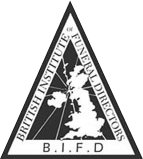Monumental FAQ's
1. How long do I need to leave the ground to settle before I can choose a memorial?
A memorial can be chosen as soon as you wish after a burial, but, in the case of a headstone the ground must be left for six months before a memorial can be erected.
2. How long will the work take?
Depending on the type of material chosen and shape, if we do not carry the memorial in stock, it will need to be ordered from our suppliers, this can take between 8 to 12 weeks, to be delivered to us.
If we do carry the memorial in stock, we can usually fix the memorial after 8 to 10 weeks after the point of order date.
3. What is the procedure with Cemeteries and Churchyards?
All memorials, tablets or headstones need to be approved by either the Council ( in the case of a Cemetery ) or Vicar / Incumbent ( in the case of Churchyard ), before they can be erected in the Burial Ground. We usually carry the necessary forms and we will ask you to sign them whilst the memorial is being ordered.
4. What am I allowed to have?
In a Cemetery, most types of material and sizes are allowed, however there are size restrictions in Garden of Remembrances and for Full Burials. We will be able to guide you regarding the Regulations. In a Churchyard, the Regulation differ in England and Wales and again we will guide with the Regulations.
5. Are there any fees to pay?
A fee is normally paid to either the Cemetery or Vicar / Incumbent, these do vary from Burial Ground to Burial Ground and we do carry the information for this in our offices.
6. What happens when a grave has to be opened for another interment?
When a grave needs to be opened for a second or third interment, we remove the memorial back to our premises, it is stored there until the memorial is refixed on the grave. We normally write to you detailing any renovation work required ( e.g. regilding or repainting the inscription and any cleaning of the memorial required ) and the existing inscription and how many lines are left for the next inscription.
Funeral FAQ's
1. When do I have to inform a Funeral Director that someone has passed away?
It is best to do this as soon as you can, so that the Funeral arrangements can begin to be made, we can then also advise on registration etc.
2. What happens if someone dies abroad or a long way from home?
The deceased can be flown back to the United Kingdom, this can take some time, depending on insurance companies and the formalities in the country where the person passed away. If someone passes away a long distance from home, we can also bring the deceased back home, this can normally take a few days to complete, dependant on registration etc.
3. What happens when someone passes away at home?
By the time we are contacted, the family has already been in touch with a doctor. The doctor will normally call to the house or he/she may give their permission for us to come to the house without a doctor having called.
4. Where does the deceased go when they have left the house?
Normally to one of our Chapels of Rest, however, if the Coroner has been informed, the deceased will have to be taken to one of the Coroners' Hospitals.
5. What happens next?
We would then make an appointment with the family to see them and make the arrangements for the funeral.
6. When will the funeral take place?
This is normally 7 - 10 days in the case of cremation, burial can be shorter, but, is very dependant on the availability of churches, clergy, crematoriums and cemeteries. Certain times of the year e.g. after bank holidays, these times can be longer. The time between someone passing away and the funeral can also be extended, for example, if a member of the family is on holiday and would like to attend the funeral.
7. How much choice do I have in the arrangements for the funeral?
As far as where, when and the finer points, i.e limousines, music, hymns, flowers etc., it is entirely up to the person making the arrangement as to how they wish the funeral to be carried out. Obviously, places of worship, cemeteries and crematoriums have their own rules, but, within reason almost anything can be done. It is always wish to check whether the deceased had made any of their wishes known, either in a will, verbally or in a pre-paid funeral plan.
8. How much will it cost?
As members of The National Association of Funeral Directors, we supply the family with a written estimate as soon as is practical after the arrangements have been made. If there are any changes made by yourselves or by us to the charges, then we will advise you of this.
9. If we have decided on a burial, can the deceased be dressed in their own clothes?
At this present moment, there are no regulations governing the clothing someone can be wearing for a burial.
10. If we have decided on a cremation, can the deceased be dressed in their own clothes?
There are regulations governing the clothing someone can wear for cremation. The clothing must be of natural fibre i.e. cotton, wool or silk, the clothing cannot be made of man made fibres.
11. Can the family or friends bear the coffin?
Yes, they can, however, the carrying of the coffin is not recommended as doing this will exceed the guidelines laid down by the Health and Safety Executive on carrying weight above shoulder height. The family or friends can still carry the coffin if they wish but it will be at their own risk. We would normally suggest the use of our wheeled bier. We will brief the bearers regardless on the process of bearing.
12. What will happen if the family or friends cannot bear the coffin?
We can supply the bearers, if you require, however, their will be a charge for doing this.
13. What are the options for the cremated remains after the cremation takes place?
There are many, in no particular order, the cremated remains can be scattered of interred at the crematorium ( some crematorium may not inter cremated remains ), they can be interred in a churchyard or cemetery, they can return to their home or a member of the family's' home or the family may wish to scatter the cremated remains at a favourite place ( there are restrictions regarding scattering of cremated remains )
14. How soon after the cremation takes place, can we inter the cremated remains?
We normally have access to the cremated remains the day after the cremation ( except if the cremation takes place on a Friday ). There is no time limit for the interment of cremated remains, however, we do suggest the interment taking place 2-3 weeks after the funeral service.
15. Are the cremated remains that we receive, the right cremated remains?
Absolutely, there is a strict process governing cremation ensuring that the correct cremated remains are received by the funeral directors. Only one coffin can be cremated at any one time in a cremator and there is a identification label that remains with the cremated remains ensuring they can be readily identified by the staff of the crematorium.
16. How long does the cremation process take?
The process can take from 1 hour and 30 minutes to 3 hours, this is dependant on many factors. However, there is a long cooling period, this is why normally, we do not have access to the cremated remains until the following day.
17. If I have decided on burial, can I reserve the grave I wish to use?
In some cemeteries this can be done, the cemetery authority will charge a fee for this, however, there are cemeteries were the reservation of graves is not allowed. You cannot reserve graves in a Churchyard.
18. How many interments can be in the grave?
Normally all of our graves are double depth ( i.e. for 2 interments ), graves can also be for 3 interments or for 1 interment and of course the cost will increases the more interments in a grave you require.
19. What happens if I use a Cemetery in another area or my cemetery is full?
The cemetery authority will normally charge a surcharge, either a percentage or multiplication of their fees for those outside of the cemetery area.
20. What happens if I want to be buried in a Churchyard that is not in my area?
The decision rests with the incumbent ( Vicar or Priest-in-Charge ) and Parish Church Council whether to allow the interment to take place. As some churchyards have very little space left, they have become 'parishioner only' burial grounds, in other words, only those who live in the parish can be buried there.
21. If I require a " green " funeral, what are my options?
A " green " funeral does not have to be burial. There are woodlands burial grounds ( where specific types of trees are planted )and meadow burial grounds ( there are no trees planted, just the grass left to grow ) specifically for those who wish, of course, traditional headstones are not allowed. If you request cremation, we would normally suggest a wicker coffin, as it is made by hand and the cut wicker will regrow ready to be cut again. Wicker coffins can be used for cremation or burial.



